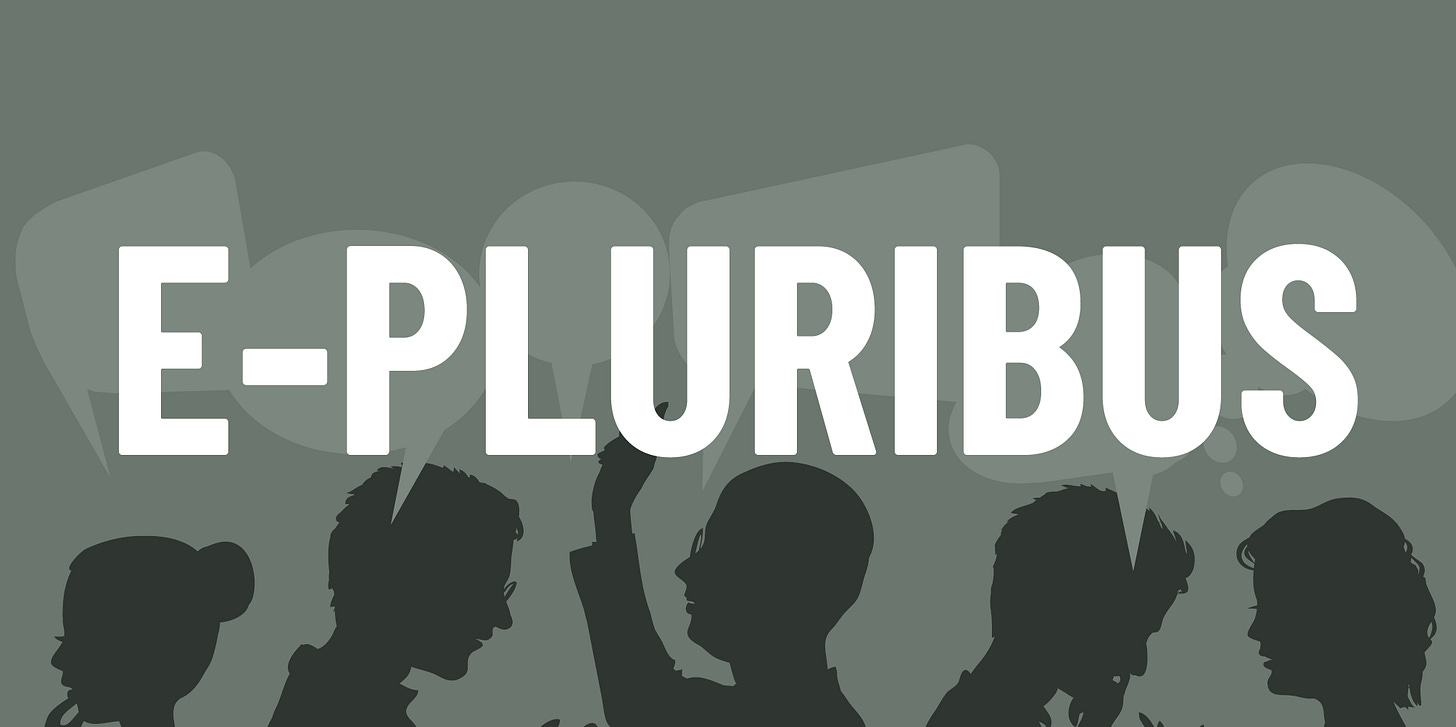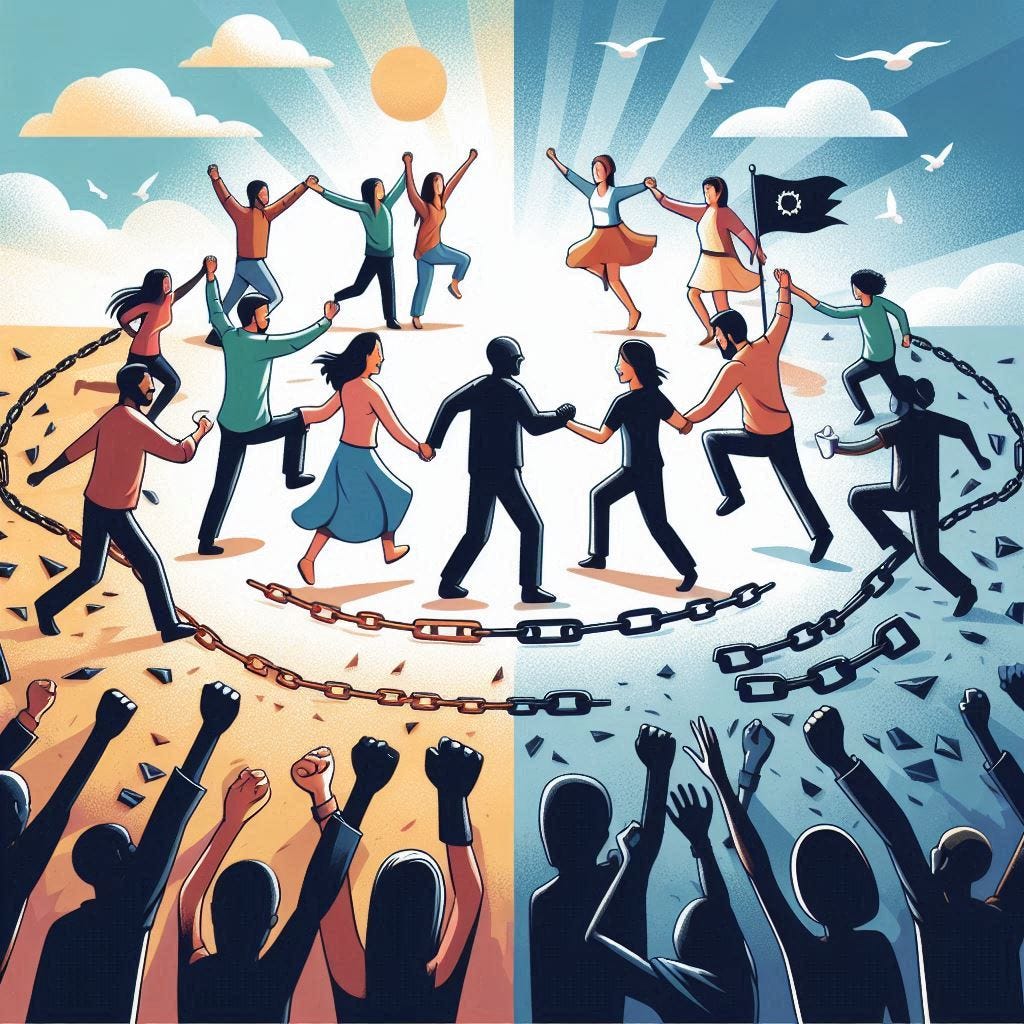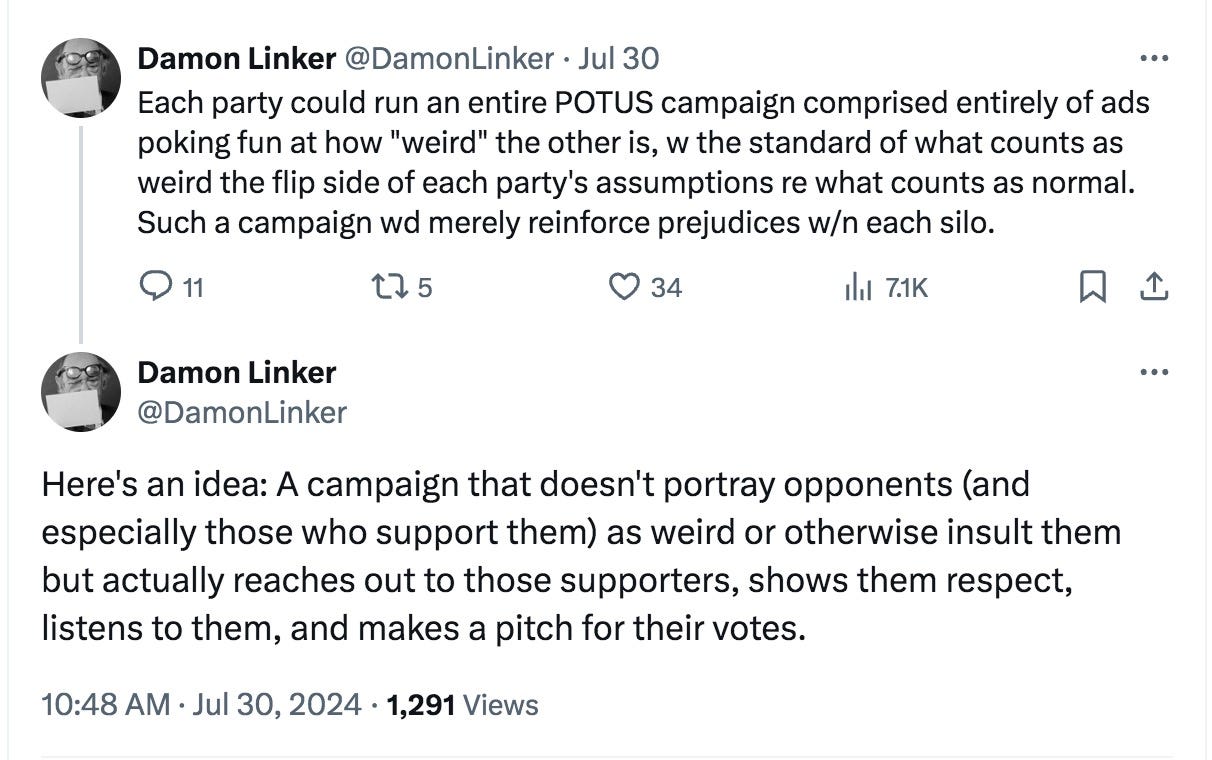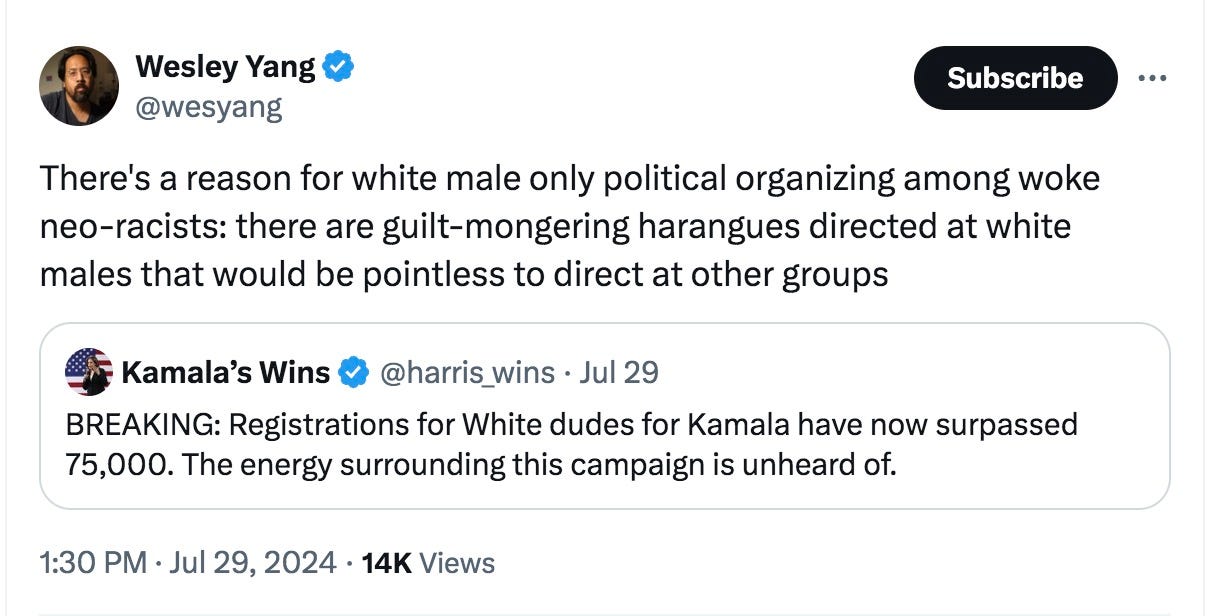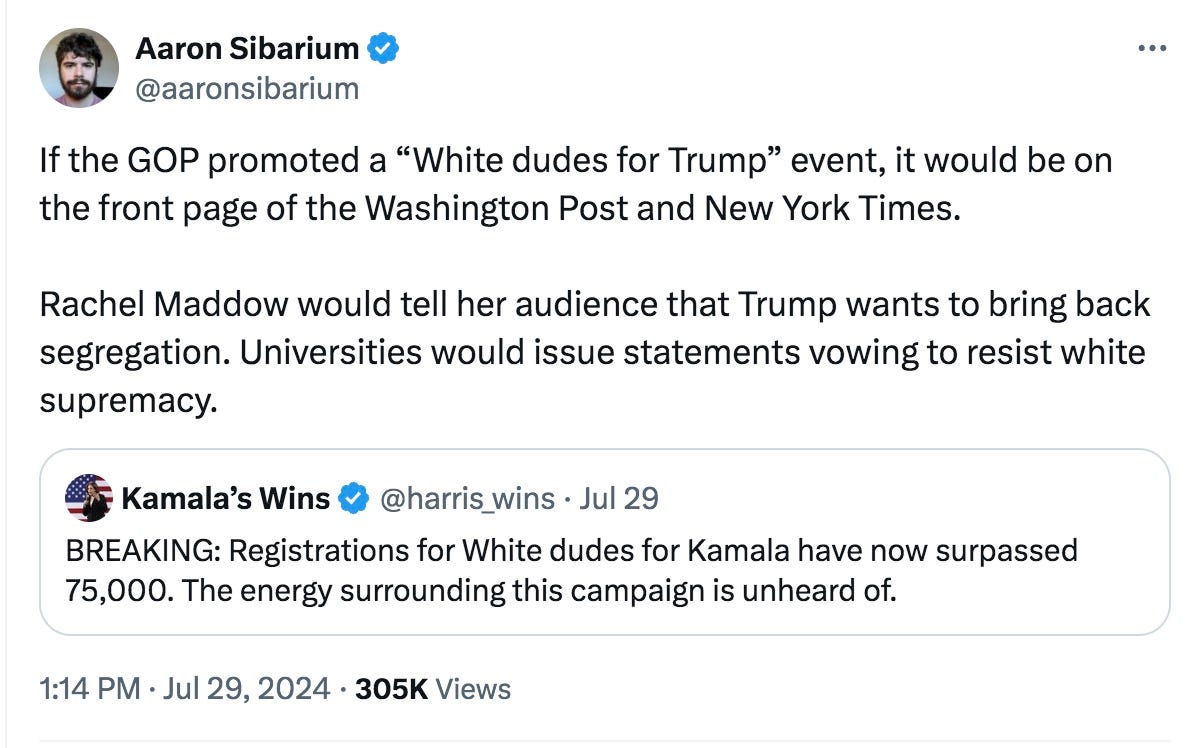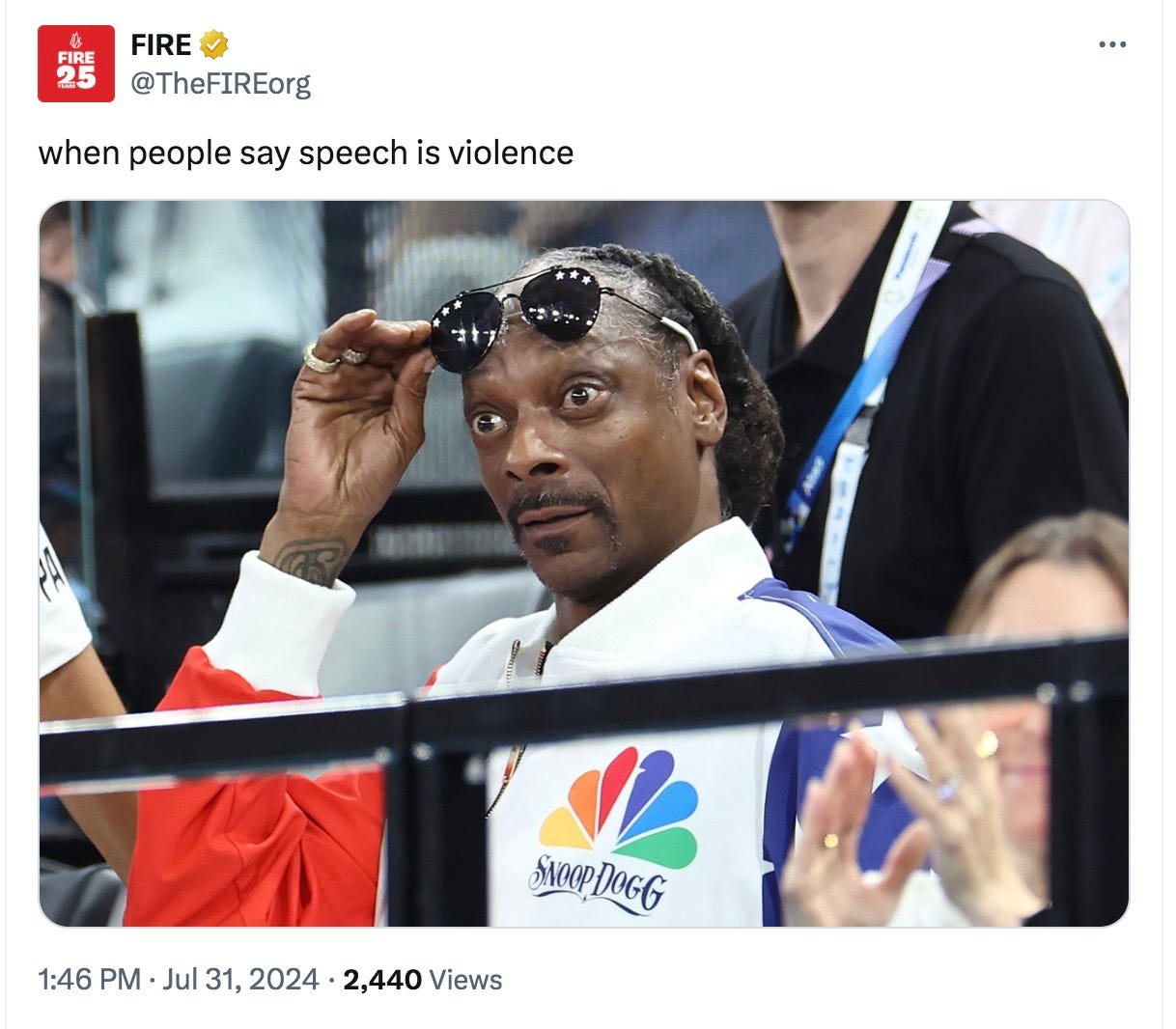E-Pluribus | July 31, 2024
Liberalism and diversity are natural partners; taking the "il" out of illiberalism; and like it or not, boycotts are speech and therefore must be free.
A round-up of the latest and best musings on the rise of illiberalism in the public discourse:
Francis Fukuyama and Pratap Bhanu Mehta: Revitalizing Liberalism Requires Understanding That It Is a Natural Response to Diversity Everywhere
Earlier in July, the Institute for the Study of Modern Authoritarianism (ISMA) hosted a conference to examine modern illiberal trends. The ISMA’s website, the Unpopulist, has published a transcript of a conversation between Francis Fukuyama and Pratap Bhanu Mehta at the conference, and some excerpts are below.
[Pratap Bhanu Mehta:] I think it’s going to be very important if you’re going to reinvigorate liberalism in the 21st century to actually do this as a global history of liberalism. And by that, I mean two things.
One, denaturalizing America and Europe as the sites of liberalism. You could tell a pretty cynical history of the last 200 years. Universal suffrage in the United States in effective terms comes into being after India’s and Sri Lanka’s. Switzerland doesn’t get universal suffrage until 1973. The number of years where almost all the attributes of a liberal regime that we value—entrenchment of individual rights, political equality, the exercise of political agency by citizens through democratic means and practices of justification: Count any Western democracy. How many years have these practices actually been institutionalized as a package?
[The British historian] Mark Madzower wrote a brilliant book, Dark Continent: Europe’s Twentieth Century. And the argument was, in some senses, that it’s not at all obvious that liberalism and liberal democracy, this package, would have won in Europe. So it’s only with this kind of post-World War II settlement, after that extraordinary catastrophe, right, that you actually got a kind of breathing space in which we come to think of liberalism and liberal democracy as kind of natural to the history of Europe and America. And I think it’s important to see that because it then will also prevent a kind of condescension towards the rest of the world, as if somehow these were natural sites of Hegelian self-fulfillment, where the real is rational, and the rest of the world is kind of stuck in this sort of stasis of history. So you do have to have a kind of history of the global that denaturalizes Europe and America.
It also means a kind of more Machiavellian reading of the history of liberalism. And by Machiavellian, I mean in the sense that [historian] John Pocock used it in The Machiavellian Moment: that liberal polities are extremely fragile, rare, snatched through moments of incredible struggle, often through violence and conflict. There is no natural ideology to them, and they can as easily be broken.
So I think we need to tell a different kind of history. But the flip side of a global history of liberalism is to also think of the ways in which the rest of the world participates in creating a global liberal order. Just take the [conference’s] last panel [“A New Theory of Liberal Internationalism”] as an example. When we think of an international liberal order, when we think of the 1945 settlement, 1948 settlement, and present it as a settlement of a kind of Western European order—as, oddly enough, even defenders of that order often present it—it’s just a colossal misreading of that history. That order came out of incredible struggles for decolonization around the world, the [1948] signing on to the United Nations Human Declaration of Rights by so many countries, and the shaping of it, including on women’s rights in some senses.
[Francis Fukuyama:] . . . I think that liberalism as a doctrine and as a way of life is historically contingent. Europe was not liberal 200, 300 years ago. Most of the world was not liberal. It came at a certain historical juncture for different kinds of reasons, but once the practice was established, it turns out that a lot of societies found it very useful.
And I would say that my answer to the charge that this is simply a Western practice is to look everywhere around the world. Today you’ve got this sociological division as to who votes for liberal parties and who votes for populist parties. And it’s actually very highly correlated with modernization and urbanization, population density. So in every country, including India, Hungary, even Russia, if you go to the big cities, people are much more liberal because that’s where more educated people live. They have more opportunities. Those places are more diverse. So in their personal lives, they have to deal with people who are very different from themselves, and experience with diversity actually does make you more liberal.
Read it all.
Joseph Heath: Illiberal Liberalism
Pluribus often addresses the paradoxical yet common impulse to address concerns about illiberalism with illiberal solutions. At Persuasion, Joseph Heath writes about illiberal liberals, what leads to the contradiction, and what can be done to correct it, or even avoid it in the first place.
[N]ot all of the people that I refer to as “illiberal liberals” think of themselves as liberal, so I should start by saying something about this term. While the way that I’m using it is standard in political philosophy, it doesn’t correspond precisely to how it gets used in public debate. In the philosophical sense, a liberal is one who believes that there should be limits on state power, and thus limits on the power of majorities to impose their will on minorities. Those on the political right who believe the government should have no power to regulate private gun ownership are espousing a liberal position, just as those on the left who think that the state should have no power to limit women’s access to abortion are espousing a liberal position.
In both cases, the liberalism consists in drawing a distinction between one’s private moral views, about how others should behave, from one’s political views, about what we can reasonably force others to do. The basic formula for liberal toleration is extremely simple. Like everyone else, you think that your way of life is right and that others have it wrong. But at the same time, you recognize that others think that their way of life is right and yours is wrong. Based on this realization, you agree to refrain from trying to impose your way of life on others, and in return they agree to refrain from imposing their way of life on you. Use of coercive power by the state is therefore restricted to cases in which everyone can agree that some form of behavior is unacceptable.
Liberal toleration was initially adopted to stop Christians from fighting with one another, but over time it proved quite successful at resolving a wide range of social conflicts. It is both cognitively and emotionally demanding, however, because it requires individuals to separate their moral disapproval of other people’s behavior from their desire to prohibit or punish them for doing it. For example, there is no contradiction in one’s believing that having an abortion is unethical but also that it should be legal (hence the old liberal formula that abortion should be “safe, legal and rare”). Similarly, the decriminalization of homosexuality in the late 20th century was a triumph of liberalism, because during the time that these reforms were initiated (in the 1960s), over 70% of the American population considered homosexual relations to be morally wrong.
Maintaining a stance of liberal toleration involves rejecting what John Stuart Mill called the “logic of persecutors.” Everyone is tempted to believe that the situation is completely different when they try to impose their views on others than it is when others try to impose their views on them. Why is it so different? Because I’m right and they’re wrong. That is the fundamentally illiberal thought. Getting to liberalism involves the additional realization that they think they’re right and I’m wrong, and so maybe it’s best to keep the state out of it.
[. . .]
Another common way to trace the boundary between the private sphere and the domain of legitimate state intervention is in terms of rights. As long as you’re operating within the sphere of individual rights, the argument goes, then you can do whatever you like, and others will have to tolerate your behavior. It is also commonly believed, however, that the rights of one person end where the rights of others begin (or as the American folk saying has it, “Your right to swing your arms ends where the other man’s nose begins”). Because of this, a good way to limit the freedom of others is to define your own rights as expansively as possible (“the bigger your nose, the less room others have to swing”).
This sort of “rights creep” has been going on for a long time, because many political constituencies find it an attractive way of framing their demands, and so traditional goods, such as housing, or entitlements, such as education, have been redescribed as “rights” in order to lend greater urgency to demands for their provision. At the United Nations level, the term “human rights” is used in a way that bears practically no relation to the traditional liberal concept of a “right” (according to which, violations constitute an illegitimate use of state power). But just as this expansive rights language can be used to press political demands, it can also be used to squeeze out liberal tolerance. Even though living in a liberal society means that you must tolerate a lot of things you disapprove of, the one thing you don’t have to tolerate is other people violating your rights! It stands to reason, therefore, that the more rights you have, the less you need to tolerate.
Read the whole thing.
Daniel Shuchman: Free Speech Includes the Right to Boycott Israel
Speaking of fighting illiberalism with illiberal methods, Daniel Shuchman at The Wall Street Journal says that’s exactly what those who wish to outlaw boycotts of Israel are doing. There’s no need to concede moral equivalence in the Israel-Hamas conflict, Shuchman writes, to insist that the right to criticize Israel, including boycotts, is a Constitutionally protected right.
To do business with the state of Arkansas, you must certify that you don’t “engage in boycotts of Israel.” A federal appeals court deemed the law constitutional because it “only prohibits economic decisions,” and since those are “invisible to observers unless explained,” they not only are unprotected by the First Amendment but don’t even constitute speech. The high court declined to hear an appeal, even though it has previously said boycotts are “deeply embedded” in our political process and entail core constitutional liberties.
Can it really be constitutional for governments to penalize the silent choices people may make based on their views of the Middle East conflict? Doesn’t that amount to a thoughtcrime?
[. . .]
Attempts to curtail anti-Israel boycotts aren’t new. In the 1970s, Congress sought to prevent Arab League countries from strong-arming U.S. companies into complying with their boycott of Israel. Federal regulations prohibited making agreements with league members or responding to their demands for information. Several companies sued, claiming among other things that the rule infringed on the freedom of speech. An appeals court rejected their arguments, ruling that commercial speech aimed solely at preserving Arab trade relationships didn’t warrant constitutional protection.
That narrow ruling applied to a limited circumstance, in which the federal government was asserting a foreign-policy objective. Today’s state laws serve no foreign-policy purpose and merely punish people for expressing disfavored views. “Texas stands with Israel. Period,” Gov. Greg Abbott tweeted after the Council on American-Islamic Relations announced a legal challenge to the law in 2018.
I stand with Israel too and find the views of the boycotters repugnant. But we should all fear the implications of a state using its power to penalize them. Governments are fickle, and one will sooner or later target a viewpoint, organization or country that you deem sacrosanct. Perhaps a progressive legislature will mandate that contractors boycott what it deems “apartheid” or “genocidal” countries. What then?
Read it all here.
Around Twitter (X)
Damon Linker with a really weird idea for the presidential campaign:
Twitter has been following the new Make Segregation Great Again trend:
And finally… well, you get the point.



